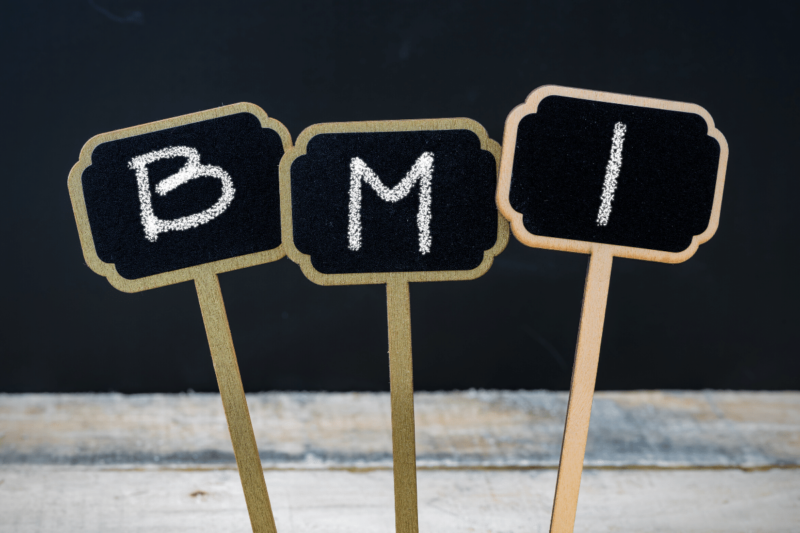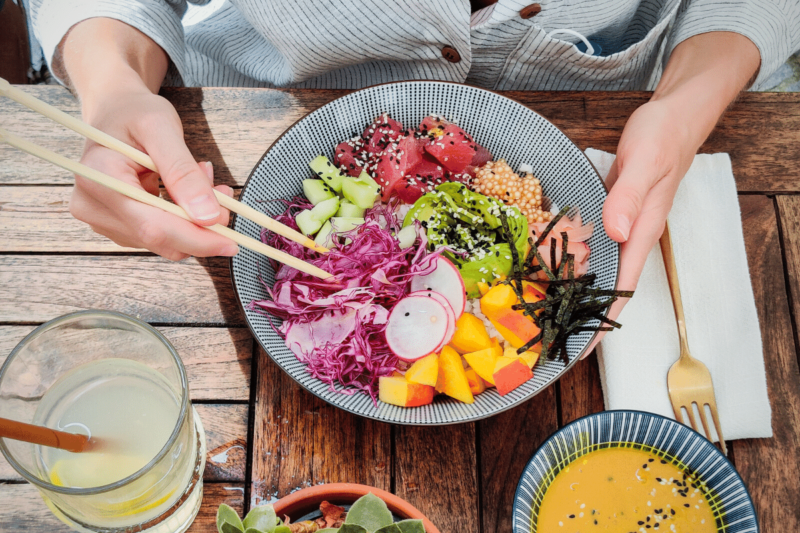Table of Contents

“Health is wealth,” or “You don’t have anything if you don’t have your health.” Those are somewhat quaint, yet somehow eternal phrases that center health as a personal value. Again quaint, because today health may be a personal value, but it’s also become a yardstick by which to measure other people’s value and worthiness.
Think of the various attributes that you consider to be part of your identity. You might list things like good sense of humor, intelligence, loyalty, kindness, creativity, intuitiveness, attractiveness, wealth, good cook, confidence, discernment, energetic, calm…and maybe healthy.
Are we encouraged to have a health-based identity, to think of ourselves as healthy? I would argue that we are, but what does that look like? If you value not just being healthy for yourself, but for how being healthy presents to other people, what does “health” look like?
- Is it about having no chronic diseases?
- About never getting colds?
- About taking lots of supplements for “optimal” health?
- About eating a varied, nutrient-rich diet?
- About always ordering the salad and saying “no” to the bread when dining out with others?
- About eating broccoli?
- About avoiding sugar?
- About looking younger than your age?
- About being fit?
- About looking fit?
- About keeping up with the latest wellness and exercise trends?
- About never missing a gym workout…ever?
Some of the things on that list are likely due to some combination of genetics and lifestyle. Others are arguably part of a healthy-but-not-obsessive lifestyle. Others are wastes of time and money. Others are signs of disordered eating. All can be part of what it means to “perform” health.

Looks can be deceiving
“’Perform health’? What does that even mean?” you ask. It means when, whether intentionally or unintentionally, we display what looks like “health” to those around us. The pinnacle of performing health would be to be thin, white, able-bodied, with at least some visible muscle tone, an energetic-yet-calm demeanor, with good hair, skin and teeth and reasonably attractive features. Depending on where you live, being seen participating in certain forms of movement (gym, yoga class) and buying certain types of food (green juices, organic food) may be necessary for a convincing performance.
However, none of these things are true indicators of health. Someone could look the way I described, do the “right” forms of movement and buy the “right” foods and find out next week they have cancer.
True health is not what’s on our outsides, and it’s not determined solely by our actions. If you were born into a loving family who could afford enough food and you had safe places to play outside, you had a major leg up on becoming a healthy adult. If you were born into poverty and neglect in a dangerous neighborhood, the deck is stacked against you even if you are able to achieve an education, an adequate income, and positive relationships as an adult.
Similarly, if you have a strong family history of certain chronic diseases, your odds of developing one yourself is automatically higher than someone who has no such history. Our actions can slightly adjust those odds, for better or for worse — I’m not saying anyone should throw up their hands and say, “Great! Nothing I do matters!” — but the playing field is not level.

Is our BMI central to our identity?
Appearing healthy can buy us the value-laden label of “health” even when it’s not buying us actual health. And one aspect of yourself that can earn you a label of “healthy” or “unhealthy” regardless of your actual health status is your body mass index, or BMI.
For example, I have a client in a larger body whose husband is thin. She knows that people (including doctors, but not just doctors) assume her husband is healthier than she is, even though she objectively has the stronger health behaviors. If you’re in a larger body, performing health can mean trying to force your body to be smaller, because even if that doesn’t work, people know you’re trying.
One unfortunate outcome of the Health at Every Size (HAES) movement is the idea that, OK, maybe being fat isn’t so bad, and maybe we can’t control our body weight…but health, now that’s controllable. A briefer way to say this is that it’s OK to be fat as long as you’re healthy. I’ve seen this referred to as “HAES whiplash,” and it’s all kinds of wrong.
Yes, it’s OK to be fat. Body diversity has been around for as long as bodies have been around. It’s also OK to NOT be healthy. It’s OK to have health problems in spite of endeavoring to live a healthy life. It’s OK to choose not to pursue or perform health.
“Wait, wait…what? Aren’t unhealthy people a drain on the healthcare system? Don’t they raise everyone’s insurance rates?”
As I pointed out in a recent Instagram post, part of living in a society is shouldering some costs that we don’t personally incur. I don’t have kids, but my tax dollars go to schools. My car rarely leaves the garage, but I still pay for roads.

The perils of healthism
Way back in 1980, political science and cultural studies professor Robert Crawford published the article “Healthism and the medicalization of everyday life,” looking at the implications of the new health consciousness movements of holistic health and self-care that gave rise to “healthism,” a preoccupation with personal health that elevates it to “a super value” that’s rooted in privilege.
Crawford wrote: “The concern with personal health has become a national preoccupation. Ever increasing personal effort, political attention, and consumer dollars are being expended in the name of health,” and “On numerous social occasions…personal health has become a favorite topic of conversation.”
Healthism also made achieving health and preventing disease a personal responsibility. In other words, if you’re not healthy, you’re not trying hard enough, even though it’s your moral responsibility to do so. Again, this was in 1980. Is it any wonder that so many people strive to “perform” health today?
Not everyone has the privilege of being healthy. As I discussed, for many people, health is dependent on factors beyond their control. Believing that you have a moral obligation to be healthy and acting on that belief can have negative consequences, including leading to eating disorders and negative body image.
In fact, orthorexia — an unhealthy obsession with being healthy — has been called a variant of healthism. While orthorexia is not an “official” eating disorder (there is some pressure to change this fact), it can harm health even when it doesn’t devolve into anorexia or another clinical eating disorder. The current trends of life extension and biohacking are newer manifestations of healthism that could lead to orthorexia, but so can many other practices that are part of the modern wellness movement.

Away with all-or-nothingism
So am I saying that no one should care about being healthy? No, absolutely not. I am saying that it is your choice whether or not to engage in health-promoting behaviors. I’m also saying that your worth and your value is not determined by your health.
I think most of us care about our health, to one degree or another. I also know that I see many people who are not taking relatively simple actions that would probably make them feel better on a day-to-day basis AND support their long-term health because of the idea that these simple actions won’t make a difference. They think that if they want to “work on their health,” that they have to go all-in with some rigid food and fitness plan.
Conversely, I see many people go all in on a rigid food-and-fitness plan that makes them anxious, not very fun to be around (if they socialize at all, given that they are afraid to be near food that isn’t on their “plan”), and no healthier. They get injured, they aren’t eating enough (or not enough of certain nutrients), they’re stressed about what they’re eating, and they get absolutely blindsided if they develop a health issue that is driven by genetics, not lifestyle.
You can’t disease-proof yourself, and research shows that “good enough” behaviors (eating a varied diet with enough fruits and vegetables and other nutritious foods, moving our bodies most days of the week) have the most positive effect on our health. Do more than that and you run into the law of diminishing returns. Basically, you could be expending a lot more effort for very little additional benefit.

Now…let’s reflect
If you value health for yourself, do you find yourself judging people who don’t appear to be putting as much effort into their health as you do into yours? If so, remember two things: You can’t judge a book by its cover, and that person is an autonomous human being who gets to make their own choices, even if they aren’t the choices YOU would make. We all get judgmental sometimes, and when we notice that we are, we can make the choice to stop. We can even get curious about why we’re being judgmental:
- Where did learn that this is OK?
- Is this a kind thing to do?
- Aren’t we all worthy of kindness?
If you struggle with your health, and you’re feeling guilty that you’re not doing “enough,” I encourage you to show yourself some compassion and remind yourself that we are not in sole control of our health. Also, what is your idea of “enough”? Is it making the pursuit of health a full-time job?
- Even if you could do that, would you want to do that?
- Would it really “transform” your health? [Probably not!]
- Are there some simple things you could be doing — and have the bandwidth to do — that would have a real positive effect?
If you enjoy generally good health but feel like you should be doing more for your health than you currently are, remember what I said above about the law of diminishing returns. Are you eating pretty nutritiously, moving your body most days, and getting enough sleep? Do you have positive ways of dealing with stress, nurturing relationships and purpose and joy in your life? Do you get regular preventive health screenings? You’re probably fine. Don’t fall for healthism, and remember that health is not a given or a constant in our lives, so don’t make it a core part of your identity.
Carrie Dennett, MPH, RDN, is a Pacific Northwest-based registered dietitian nutritionist, freelance writer, intuitive eating counselor, author, and speaker. Her superpowers include busting nutrition myths and empowering women to feel better in their bodies and make food choices that support pleasure, nutrition and health. This post is for informational purposes only and does not constitute individualized nutrition or medical advice.
Seeking 1-on-1 nutrition counseling? Carrie offers a 6-month Food & Body program (intuitive eating, body image, mindfulness, self-compassion) and a 4-month IBS management program (low-FODMAP diet coaching with an emphasis on increasing food freedom). Visit the links to learn more and book a free intro call to see if the program is a good fit, and if we’re a good fit!
 Print This Post
Print This Post





More Stories
The One Thing You Should Never, Ever Do if You Have Insulin Resistance and Want to Lose Weight
Tuna Salad Lunch Box – JSHealth
Advanced Wellness Course – Heart Health